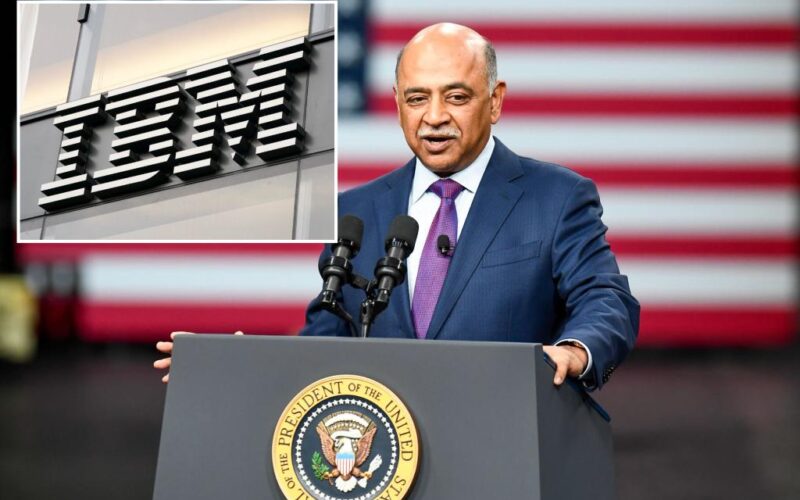IBM will invest $150 billion in the US, including on facilities for quantum computer production, over the next five years, the latest American technology company to back the Trump administration’s push for local manufacturing.
The company’s announcement on Monday follows similar pledges by tech giants such as Nvidia and Apple, both of which have said they would spend about $500 billion each in the country over the next four years.
Several analysts see the spending commitments as overtures to President Trump, whose tariffs threaten to roil supply chains and raise costs for the technology industry.
IBM, also a significant government contractor, said more than $30 billion of the total investment would be used to expand its US manufacturing of quantum computers and mainframes — systems used for handling vast data and critical applications.
The company operates one of the world’s largest fleets of quantum computing systems, which promise to offer performance thousands of times more powerful than traditional computers.
“While we believe IBM will continue to invest in the emerging area of quantum technology, the bombastic figure is more likely a gesture towards the US administration,” said D.A. Davidson analyst Gil Luria, noting that Big Tech was using the investment pledges as a shield against trade conflicts.
Recent breakthroughs in quantum computing, including a new generation of chips announced by Alphabet’s Google in December, have driven up interest in the sector, though executives remain divided on when the technology will have real-world applications.

Google aims to release commercial applications in five years, while Nvidia’s CEO Jensen Huang predicts a 20-year wait for practical uses.
IBM said last week 15 of its government contracts were shelved under a cost-cutting drive by the Trump administration, a setback that eclipsed its upbeat June-quarter revenue forecast and sent its shares lower.
The company had cash and cash equivalents of $14.8 billion as of Dec. 31.
It spent $1.13 billion on capital expenditure last year, while total expenses were $29.75 billion.








